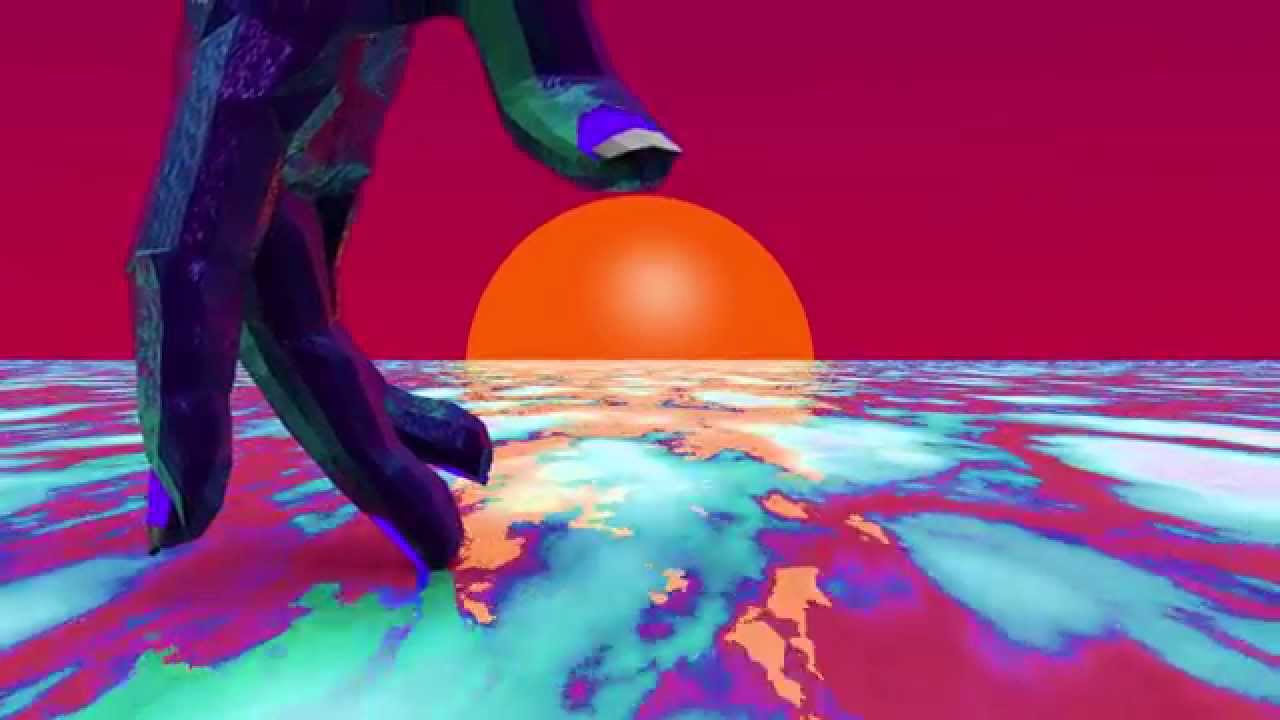
All images courtesy of Tech Honors
-format(jpeg)-mode_rgb()-quality(90)/discogs-images/A-4096751-1608408314-6295.jpeg.jpg)
Tech Honors is a member of the three piece group, Deaths Dynamic Shroud, and he is an Experimental Electronic/Vaporwave artist who has been in the game for several years now. In that time, he’s released a few studio albums, some of which are absolutely essential to any Vapor/Electronic collection regardless of which format you collect. Albums like I’ll Try Living Like This, CLASSROOM SEXTAPE and Heavy Black Heart are some of the finest and most uniquely interesting the genre has to offer. Today, I’ve got none other than Tech Honors with us. He’s a cool dude and I was happy to get to know him better. If you’d like to learn more about Deaths Dynamic Shroud.wmv, then I will direct you to their Bandcamp here. Once you’ve done that, give this interview a read. Enjoy.
Andrew:
Tech, thank you so much for taking the time to speak with us here. How are you holding up during this seemingly ever-raging dumpster fire?
Tech;
I’m actually great, thank you! I’ve been mostly unaffected by COVID/quarantine because I work from home and I rarely go out anyway – if anything, quarantine has made my lifestyle seem more “normal” to everyone else. Haha.
Andrew:
Tell us about your backstory. How did you get into music? What was your musical gateway so to speak?
Tech;
I’ve been into music for as long as I can remember – my dad had a big vinyl collection and he introduced my sister and me to late-50s/early 60s Pop “maltshop” music at a super early age, as well as a lot of other popular “oldies” music. I didn’t start discovering modern music until I was 7 or 8 years old. In elementary school, I was obsessed with Meatloaf, Neil Diamond, and Garth Brooks. They all have a flair for the melodramatic, which I still appreciate to this day, and can be seen expressed in a lot of the music of Death’s Dynamic Shroud. In middle school (mid-90s), I started to get really into radio Rock music, and then in high school, Radiohead released Kid A, and it kind of fundamentally changed the way I thought about music and really opened the doors for me to a lot of other kinds of music, particularly “weird” Electronic music.
Andrew:
While you are often lumped in with Vaporwave only, do you consider yourself a Vaporwave artist, or do you merely use some elements of it within your music? What are your thoughts on Vaporwave?
Tech:
I tend to just think of myself simply as a “recording artist.” I think genres are best left for listeners and critics to decide. When James and I were first making music under the Death’s Dynamic Shroud moniker, I think we were definitely purposefully making what we would call Vaporwave, but at this point I don’t think we make particularly Vaporwave-y music – it’s heavily sample-based but there’s plenty of non-Vaporwave music that is sample-based. But, again, it’s not really for us to decide what genre we fall under – that’s up to listeners.
With Vaporwave, once you’re sort of labeled a “Vaporwave artist,” it kind of just sticks with you regardless of the music you start making. I was a little irritated by this at first, especially because there seemed to be kind of a stigma associated with the genre for a while, but now I just embrace it – the Vaporwave community is extremely tight-knit and supportive, and it’s growing and evolving all the time, so it just feels better to just go with the flow rather than against it.
Vaporwave ultimately seems less like a musical style and more like an aesthetic wrapper associated with Electronic music – it seems like you can make any kind of Electronic music, put traditionally Vaporwave-y elements in the artwork, and people will just simply call it Vaporwave. At first, I thought this was a bit silly, but now I like how expansive it allows the style to become, as well as how much it blurs the lines around what defines “genre.”
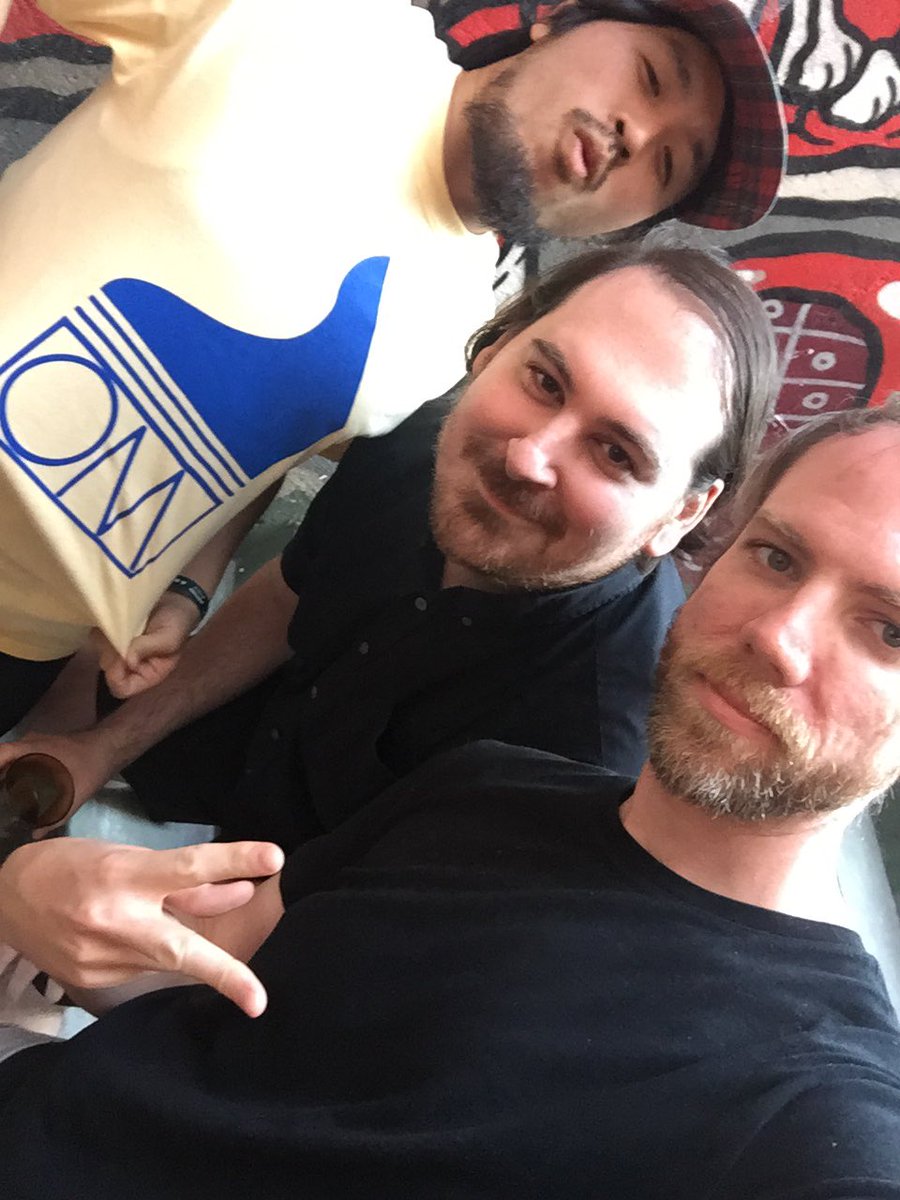
Andrew;
I’ll Try Living Like This is a sign marker for me within the genre. It’s pretty iconic. It was actually just reissued. Tell us about the recording and making of that album. Looking back, what does that album mean to you? What do you feel its lasting impact on the genre is?
So, I actually have kind of a strange relationship with that album since I am not actually on it. Death’s dynamic shroud is a 3-piece group – it’s James Webster, Keith Rankin, and myself. We don’t always work together, sometimes we work separately. In the case of I’ll Try Living Like This, that is only James and Keith. They got together for an extended weekend and recorded the whole thing in about a 4-day span, just kind of having fun chopping and screwing American and Korean Pop music.
Not to take anything away from it, but I do think the success of that album has at least something to do with “right place, right time.” It was released on the label Dream Catalogue, which at the time was easily the most prominent Vaporwave-centric record label. And in 2015, Vaporwave’s popularity was growing very rapidly, and listeners were becoming more and more accepting of the broadening of Vaporwave’s sonic palette. So when I’ll Try Living Like This came out, it was heard by a lot of the community and became kind of a talking point, which gave further attention to it.
That said, speaking as someone who didn’t actually work on that album, and therefore just as a listener, there really is a particular magic to that album that is hard to articulate. It’s kind of a bewildering listen the first time around, but it seems to have enough intrigue to it that makes you want to listen to it again, as if to “decipher” it or something. Also, as is the case with much of Vaporwave, I believe the cover artwork really elevates it and adds to the mystique surrounding it.
I’m not sure what its lasting impact on Vaporwave is. It seems as if maybe “glitch” elements and the use of modern Pop music as a sample source have become a bit more prominent within the genre since the album came out, but I don’t think we can really claim to have innovated that idea so much as maybe we popularized it? Ultimately, the assessment of its legacy is probably best left to listeners and critics.
Andrew:
What are the origins of the Deaths Dynamic Shroud moniker?
Back in 2013, I happened upon a bizarre YouTube video of a computer-animated skeleton wearing a cloak, and like Fortnite-style dancing while pitch-shifted screams served as a musical backdrop. The whole thing was very surreal – kind of funny, kind of unsettling. Anyway, the uploader (whose channel is full of these strange amateur CG animations) left the file extension of the video in the actual title when they uploaded it to YouTube – so the video was called “death’s dynamic shroud.wmv.” I linked the video to James and, as a joke, he said that the title would be a great Vaporwave artist moniker. A few months later we ended up using it. Haha.
Andrew:
Who are some of your biggest influences musically?
Tech;
I can speak for both James and myself when I say that Radiohead has had the biggest influence on our music. He and I were both very into 90s British Rock music, which itself is kind of just an extension of The Beatles. With Death’s Dynamic Shroud, it has always sort of been our goal to implement Beatles-style chord progressions into our music. Additionally, Nine Inch Nails had a huge impact on us – particularly the way they created unsettling atmospheres; that has always appealed to both James and myself. Pink Floyd is another big one – the flair for the dramatic, and the drugged-out spaciness. We each have our own set of specific influences too – I really love commercial Pop music, James has a big background in Ambient music, and Keith grew up on 70s Prog-Rock. We all adore video game music. It all kind of coalesces to make something new.
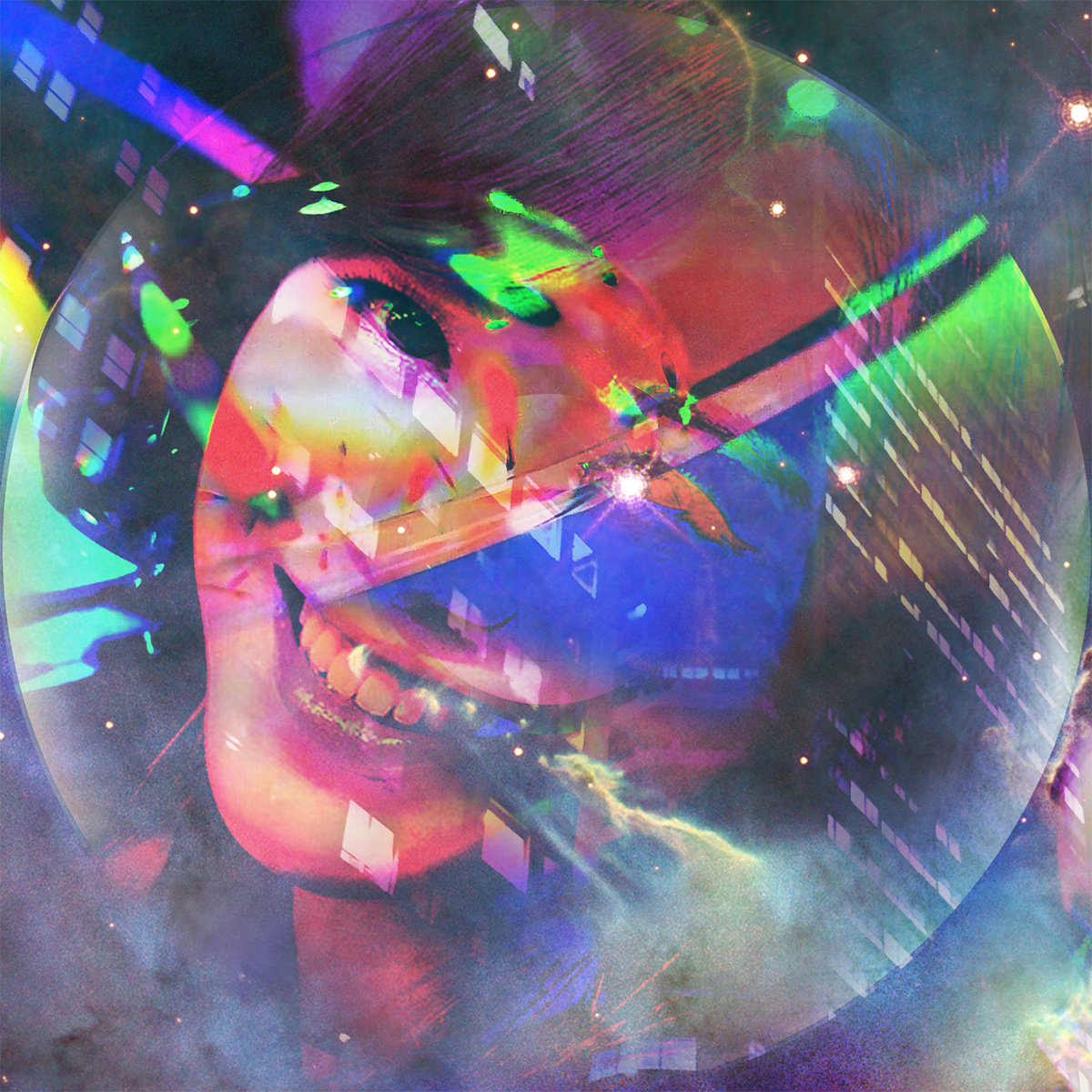
Andrew:
There are a lot of misconceptions and confusion regarding how your music comes together. Can you tell us a little bit about your process? How does your music come together?
Tech;
We operate as kind of a loose collective. It started out with James and I take turns making “solo” albums under the Death’s Dynamic Shroud.wmv moniker. Then Keith collaborated with James on 신세기 EVANGELIS, which marked his first appearance in the group. We continued to put out music in various combinations for a while, until 2017 when we released Heavy Black Heart – that was the first time all three of us worked together in the same room to make a Death’s Dynamic Shroud album. We intend to do all future albums the same way – we recently just finished up a two-week recording session in Philadelphia where all three of us were present. However, James and I also set up a subscription service where he and I take turns releasing a new Death’s Dynamic Shroud album every month, in the style of our 2014 albums. So we have created kind of a “multiple timelines” scenario where we continue our “solo” album output for the subscription service, but there will also be new “major” releases which feature all three members working together. Just trying to be as confusing as possible! Haha
Andrew:
Thinking back, how have you evolved as an artist today, compared to where you were when you were just getting started?
Tech:
Well, I first started making music in 2000, so the cultural landscape was pretty different than it is now. I was far more into accessibility and writing within the confines of traditional Pop song structure because being in a Rock band seemed like a viable avenue at that time. So, I guess the biggest change would probably just be that I’ve expanded my horizons as to what constitutes “accessible,” but also that concept has maybe changed culturally too. So, it’s hard to say. When it really boils down to it, my mission as an artist hasn’t really changed that much since when I first began – I’ve always just wanted to make the music I wanted to hear. Like having an itch that no one else can scratch, so I scratch it myself.
Andrew:
Two of the biggest issues in the Vaporwave community are FOMO and scalpers. These releases are all so limited, and the prices get insane in the aftermarket. What can be done better to help thwart the scalpers that plague the community? What would you say to the scalpers out there?
Andrew:
I think the easiest way to prevent the crazy aftermarket prices is to simply re-press albums when they sell out, don’t just do limited runs all the time, or create false scarcity. Additionally, maybe limit purchases to one per customer if possible, or something like that. But as long as people are willing to pay exorbitant prices, the scalpers have no incentive to stop. There’s nothing I could say to the scalpers that they haven’t already heard – it’s obvious that the immorality of scalping isn’t a problem for them. And in a world where many are struggling to get by, it’s hard for me to blame them for gaming the system. That said, I am not a tape collector so I don’t have to deal with these issues firsthand – perhaps if I had more skin in the game I’d be a little angrier.
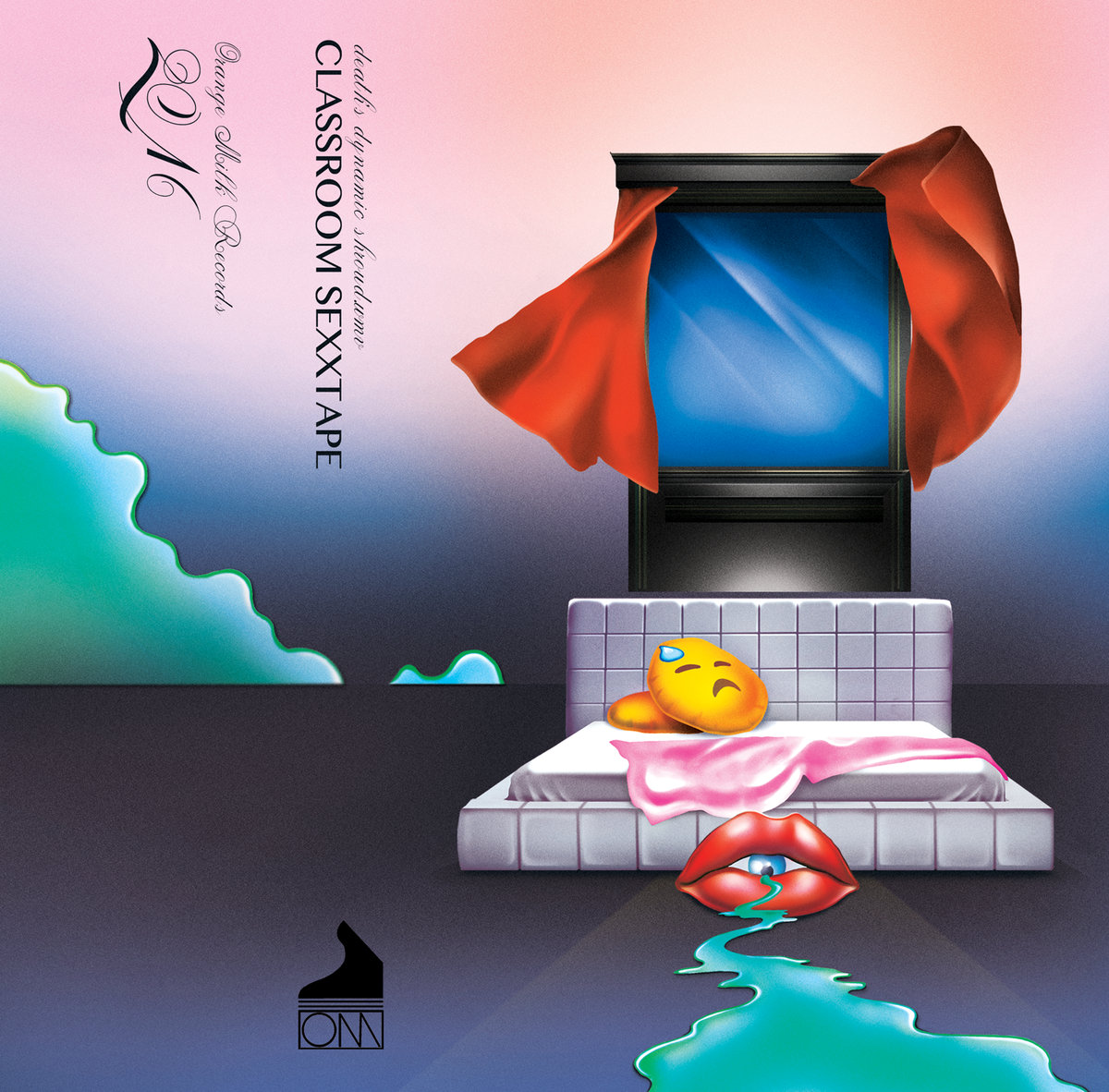
Andrew:
We know about all of your classic albums, but tell us what you’re working on now. What have you got in store for us going forward?
Tech;
Currently, James and I have been working on the monthly albums I mentioned before as part of our Bandcamp subscription service, the “NUWRLD Mixtape Club.” But as far as the next “major” release is concerned – we’ve got a lot of songs recorded for it. I feel like it’s a logical step forward from Heavy Black Heart. There is definitely some Prog-Rock influence to the new songs, particularly in terms of song structure. The songs are dark, but not always sad/moody necessarily. Lots of fast-paced stuff. Still sample-heavy but not as much as in the past, there is more original composition incorporated. And while there are still plenty of vocal samples, James and I also sing quite a bit on the new album. We’re super proud of the way it sounds and very excited to share them with everyone.
Andrew:
Shifting gears here, is there anything within the industry that you would like to see change for the better? What improvements would you like to see that you feel would be beneficial to us all within the vinyl community, and music community in general?
Tech:
I don’t think streaming services are inherently a bad thing, but obviously, like almost everyone, I’d like to see better pay for artists from them. I’d also love to see Bandcamp incorporate some type of playlist-creating service into their platform, both platform-curated and listener-curated. I think playlists can be a great tool for music discovery, and I think it could be really beneficial to the artists since it would be a part of a platform that already encourages the purchasing of music. As far as the vinyl community goes, it’d be nice to see more steps taken to be environmentally conscious with vinyl production and manufacturing, even if it’s something as simple as offsetting carbon footprint by donating to/collaborating with organizations that contribute to the development of renewable energy products and services.
Andrew:
A lot of people try to define what genre you’re associated with. You seem to like to disassemble genres in a way. What are your feelings on that? What are your thoughts on the idea of genres in general?
Tech;
I touched on this a bit earlier but I feel like the purpose of genres is just to be a classification system that makes it easier to talk about music – therefore, it’s best left to listeners and critics, and not really meant for artists to decide. And I think that’s fine – people have an innate desire to sort of organize the abstract, to apply classification systems to complicated fields. But I think that if an artist gets too into the concept of genre, they’ll operate within certain confines that can be creatively stifling, and I say that as someone who has fallen victim to that way of thinking in the past. Death’s Dynamic Shroud doesn’t go out of our way to “disassemble genres” I don’t think – we just make what we think sounds cool, what we want to listen to. But I know that, as a listener, I have often interpreted some music as “deconstructing” certain genres, so I do understand why people think that about us.
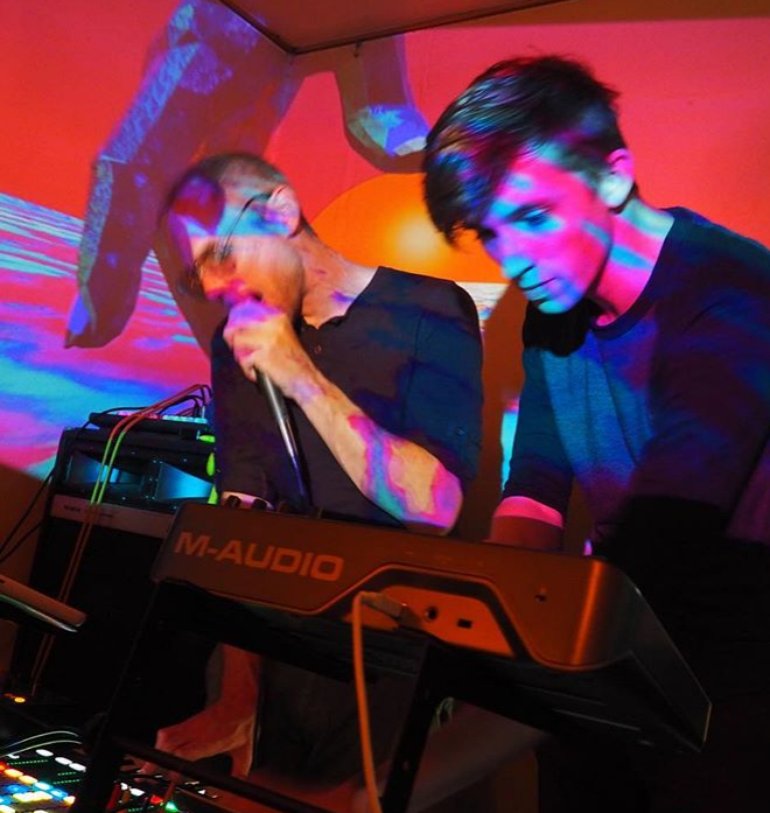
Andrew;
The way I initially discovered your music was through Bandcamp and Reddit. In your opinion, how important has both Bandcamp and Reddit been to the Vaporwave scene, and Indie music in general?
Tech:
I think Bandcamp is just the best. Greatest website on the Internet. I’m sure that Reddit has helped people discover plenty of music, but I think that platform is more often used for self-promotion than discovery, especially as genre-specific subreddits grow in popularity. At one point, r/vaporwave was a cool place to find new music, and I think it was instrumental in helping to build the community, but it’s a toxic wasteland now. The community is much more alive on Twitter and in Vaporwave-centric Facebook groups.
Bandcamp continues to be instrumental in the growth and success of Vaporwave though – it offers a place for artists to sell their music and makes it easy to click around and discover stuff on one’s own. As far as genres go, I honestly think Vaporwave might be the biggest success story to come out of Bandcamp. The fact that cover artwork is so intrinsically tied to albums on their platform really lends itself to the visual aesthetic component which is so important to Vaporwave as a whole.
Andrew:
Vaporwave has existed in digital forms for a long time. What do you think of the rising wave of support for vapor-vinyl over the last few years?
Tech;
I love it. I think that many people, including myself, feel that an album existing on vinyl lends credence to its validity as a piece of art (even though that idea is obviously absurd). Having a physical object to hold and look at and interact with and play on a piece of hardware that’s specifically devoted to it – it makes the album more personal to the listener. And the size of vinyl, being larger than tapes and CD, makes it even better.
Andrew:
Another interesting development in the Vaporwave community has been the sudden resurgence of cassettes. Did you see that coming?
Tech:
I had noticed the trend beginning to grow a couple of years before Vaporwave existed because Keith had released a few of his albums (under his Giant Claw moniker) on cassette. And he had also started Orange Milk Records in early 2011, which was putting out music on cassette tape. But that said, I didn’t realize how intense it was going to get. Vaporwave really took it to another level – I don’t really see the same level of fervor being reached with the sales of other “underground” styles of music, at least not as often. I think it has a lot to do with the community built around Vaporwave – I have had a hard time finding the same kind of community for other “internet” genres.

Andrew:
Do you collect vinyl? Tapes? CDs? Or are you all digital now? If so, what are some albums that mean the most to you? Where do you like to shop for music?
Tech:
I do not collect physical media anymore. I had a big CD and video game collection that I had been working on since I was a kid, and a decent vinyl and cassette collection, but I sold all of them about five years ago so that I could afford to move down to Florida, and I just don’t think I have the heart to start a new collection. So I’m all digital now. My favorite albums were always ones with unique packaging – the special edition version of Radiohead’s Amnesiac was always my favorite. And then Blur’s album 13 is my favorite album of all time, so the special edition package of that is great too. In fact, aside from my own recordings, those two CDs are the only two pieces of physical media that I didn’t sell – I still have them.
Andrew;
What other passions do you have? How do your art and passions influence your music, if at all?
Tech:
I love absurd comedy – Tim Heidecker is my hero and I get into basically everything he touches. And I use my Twitter account to mostly just tweet jokes or ideas that make me laugh. I also really love sports, particularly basketball and American football – I don’t really watch television but I do watch sports. And I love Final Fantasy video games.
I think most media you consume has some level of impact on the art you create. Final Fantasy has had a major impact on Death’s Dynamic Shroud simply because we have sampled music from the series so much. Absurdism definitely plays a role in song titles, as well as just a general approach to experimentation. Sports works its way in occasionally – our album WORLD WAR OLYMPICS, for example, has a sports-related theme to it. And I think James and I both have a general love for competition which fuels our creative ambitions as we “compete” with each other to make the best music we can.
Andrew;
Last question. You’ve always embraced the DIY approach to music. What advice do you have for young musicians trying to get their start?
Tech;
Don’t expect success to come quickly. It took James and me 15 years of working in total obscurity before anyone started paying attention. Also, learn to play an instrument. You’ll have a much larger musical vocabulary if you can do more than just manipulate a DAW. And finally, never stop adding to your body of work – just keep creating and creating and creating.

Interested in checking out the work of Death’s Dynamic Shroud? Check out the link below:
Dig this interview? Check out the full archives of Vinyl Writer Interviews, by Andrew Daly, here: www.vinylwritermusic.com/interview
